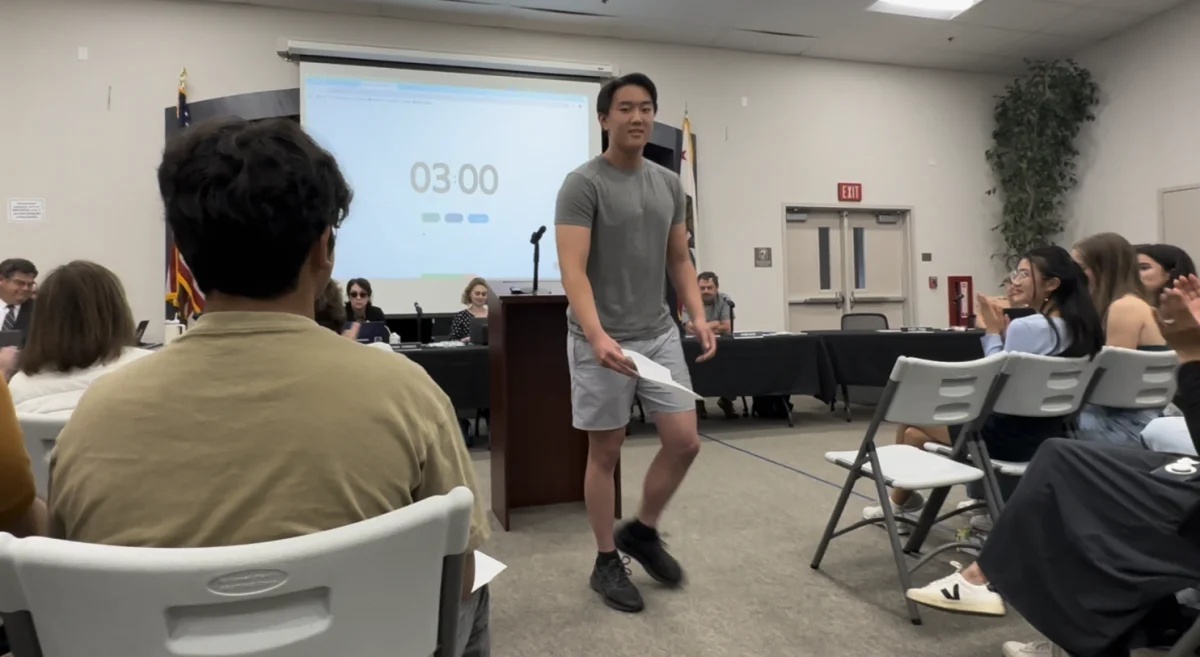Every school year, ninth graders have to take a state mandated fitness test. If they fail, they must retake P.E. the following year, regardless of whether or not they are involved in a sport. While some testing is certainly necessary, the current test is flawed and unfair to many students.
Last year, 82 percent of students at the school passed 5 out of the 6 tests. If mastery of 6 tests is not achieved, retaking PE becomes necessary. However, tests are unfair to many students. This is largely because one of the tests is based on BMI. If a student’s BMI is above a certain number that counts as a failed test. Additionally, there is a sprinting test and many students with higher BMIs tend to fail that test.
This becomes a problem especially for students with particularly muscular builds. These students have higher weight to height ratios and therefore higher BMIs. Because of this, they often don’t run as fast. On these two factors alone, they can be forced to take P.E. again. Many of these more muscular students are involved in sports and actually very fit.
However, despite this, P.E. department head Jim Phillips said the tests are indeed fair for students.
“I do believe the fitness tests are fair to all students,” Phillips said. “I understand that there has been some concern over those students with a high body mass index (BMI) needing to perform better on the aerobic capacity tests than those with a low BMI. This is because having a high BMI, regardless of the reason, increases the risk of heart related diseases.”
While it is certainly true that having a higher BMI can be dangerous, there are students who have different body shapes and builds. Because BMI’s are simply a comparison of height, weight and age, someone who is particularly muscular can score a similar BMI to someone who is less fit.
“I think the idea behind this testing is valid, but over the years they’ve made changes that I’m not so sure make a lot of sense,” Principal Wynne Satterwhite said. “Part of the changes are based on the national obesity studies and so when you look at certain things like you know body [mass] index…yes, in a non athletic person that very well may be unhealthy, but when you have athletes…I’m not sure it’s been calibrated correctly.”
Additionally, students are only able to take the test once their freshman year and again at the end of the first semester of their sophomore year. Because of this, it is an all or nothing proposition. If students happen to have a bad day, they can be forced to have an entire extra semester of P.E.
“The test itself is biased against larger students and should be changed,” Superintendent Barry Groves said. “Students should also have multiple opportunities to pass the test.”
The only other time students can take the test is at the end of the first semester of their sophomore year. If they pass, they don’t have to take it second semester. If they fail they must finish the year out. The problem is that they have to wait an entire semester. Simply failing the one test freshman year means students must at least take another complete semester of P.E. before they can retest.
Physical education is certainly important, and we need to ensure that students are fit, but students of different body types shouldn’t be unnecessarily penalized. If students are able to participate in a sport, they are already getting physical activity on a daily basis.
However, because this is a state mandated test, the school has no control over it. The way state law is currently being interpreted forces students to retake P.E. This is a fundamentally flawed system that is biased against students of different body types.








